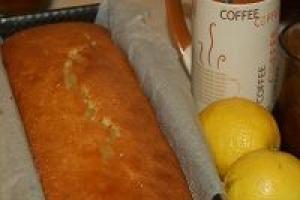How to get rid of ants in the garden? This issue is one of the most important for gardeners, after the problem of weed control.
Unfortunately, not all insects that live in nature are only beneficial to humans, for example, ants, which are divided into forest and garden species.
And if the first are called forest orderlies, then the second type can be considered a scourge from which it is not so easy to rid your garden or garden plot.
The question of how to remove ants from the garden will always remain relevant, because there is no universal method of combating garden ants does not exist.
Black and red ants
Garden ants are black in color and small sizes, which distinguishes them from red forest workers.
In addition, unlike their relatives, gardening insects do not live in an anthill, but they build their nest directly in the ground. You can spot the ants' habitat by looking at a small mound.
Often such ants make their home in the garden in the rhizomes of plants, garden shrubs and trees.
The food of garden insects is aphids, which they help reproduce by spreading them to the branches of other plants.

Ants protect their food or “herd of aphids” from other insects, which are also not averse to feasting on the liquid secreted by aphids.
Ants transfer aphids only to young plants, from which they suck out the cell sap, after which the plants quickly become weak.
Often, on plants affected by leaf aphids, one can notice twisted tops, deformed young leaves and shoots that have stopped growing.
This suggests that the aphid, feeding on sap, secretes poisonous substance, due to which the normal functioning of the plant is disrupted.
Moreover, aphids can be carriers of the virus, which causes large-scale damage to garden plants.
For this reason, the fight against ants in the garden or garden must be comprehensive, that is, you need to know how to get rid of aphids and ants at the same time.
After all, if no measures are taken regarding aphids, the pest can produce approximately 50 generations over the summer, which will seriously affect the quality and quantity of the harvest.
If there are pharaoh or red ants in your garden plot, then they are even worse than black ones.
Not only do such insects harm all plants indiscriminately, but they are also difficult to eradicate not only with folk remedies, but also with special chemicals, to the components of which they quickly become accustomed.
Insects quickly restore the numbers of their colonies. By the way, it is not uncommon for red ants to find a place in the underground of a residential building and then come to the surface.
Red ants cause enormous harm to shrubs and plants in whose rhizomes they form their nests, so they must be dealt with first.
Typically, a strong ant colony of 5 to 8 million workers can destroy a healthy mature tree in a couple of years.
This type of insect loves the liquid secreted by aphids. There is even an assumption that they themselves know how to “milk” tiny insects.
Ants usually settle in places where the soil is rarely cultivated. Therefore, the first rule of combating these insects includes regularly loosening the ground, which will reduce the chances of ants strengthening their homes.
You can save the roots of a tree from being colonized by insects by using lime, which is used to treat its trunk and water the ground around it.
The ground around the trees can be sprinkled with wood ash and baking soda - the substances help fight by greatly drying out the soil.
If an ant nest is found in the garden, it must be destroyed. For this purpose, they dig up not only the nest, but also the area surrounding it.
The dug up earth is poured lime mortar and covered with a layer of ash.
Then the soil inhabited by the ants is dug up again, after which the ants will leave their home, but they can immediately find a new one nearby, so you need to monitor their actions during this period.
You can get rid of ants forever, but to do this you need to destroy the queen - she is also the “queen” of the ants.
By the way, if there is no food for ants in the garden plot, then it is possible that insects will not colonize such land.
In this case we are talking about aphids living on plants. If you constantly poison it, then the insects will not have anything to support their livelihoods.
But you shouldn’t get too carried away with hunting ants, because if they completely disappear from the area, then other pests that are afraid of ants will fill the garden area, for example, caterpillars.
Therefore, if the ants do no harm, that is, they do not spoil the beauty of the lawn and flower beds, then maybe you shouldn’t touch them?
It is difficult to get rid of ants in your garden forever. This factor is due to the multi-tiered shape of the anthill and the fact that only hard-working insects come to the surface of the earth, and their queen remains in her underground kingdom all the time.
Destroying working groups of ants will not give the desired result, since they will quickly be replaced by other insects.
A remedy for ants in the garden will help achieve the effect, which the workers will unconsciously carry on their paws to their nest, where the queen and larvae will eventually be destroyed.
In this case, it will not be possible to do without the use of a highly effective modern drug.
Chemicals for aphids and ants
Tiny garden aphids can ruin the quality of a crop in a short period of time. Plants affected by aphids begin to wither, and if they are not treated in time, they die completely.
Aphid repellents should be purchased by garden owners every season. In addition, it is better to prevent any plant disease than to treat it later and restore the quality of its fruits.
Therefore, for preventive purposes, plants growing in the garden should be regularly inspected for the presence of pests.
If during the inspection only a few harmful insects are identified, then you can expect that in a couple of days their number will increase significantly.
You can notice this by the curled leaves of the plants. Another pest will definitely live next to the aphids - an ant that loves to feast on its juice.
Therefore, chemical preparations are often produced to get rid of several types of insects at once.
But if it is possible to poison ants with a chemical preparation without danger to human health, then poisoning aphids using this method is not always possible.
Therefore, it is better to use natural methods of control and folk remedies to get rid of aphids.
In the first case, we are talking about natural enemies of aphids - these are ladybugs that eat plant pests.
Not only should cows not be destroyed, but if possible, their ranks should be replenished by walking in the meadow and carefully collecting bugs in a box.
Additionally, it is worth planting plants in the garden that aphids do not like, such as chamomile, garlic and onions. They will help cope with pests, but on the condition that there are only a few of them.
Otherwise without chemicals not enough.
Insecticides that contain the active ingredient diazinon, which, in combination with other components of the drug, affects nervous system insects, causes paralysis and death.
Approximately 48 hours after contact with the chemical, insects die.
As for the consumption of the insecticidal substance, it is minimal. In certain cases, 10 ml of product is sufficient to treat 50 square meters. m of ant-infested land.
Such drugs can destroy not only adults, but also larvae.
How to get rid of ants using folk remedies?
You should not use chemicals to kill pests in your garden.
If possible, it is better to remove them mechanically or biologically, since insecticides carry great harm plants, earth and, accordingly, people.
For example, here is one of them - at first glance, a troublesome, but effective method:
- make sweet syrup: water, sugar and honey;
- Place a thin groove and pour syrup into it;
- After the insects are trapped, collect them and destroy them;
- the procedure must be repeated after a few days, but the groove must be installed on the other side of the anthill.
You can drive ants away from your home and drive them away forever from your garden or vegetable garden with the help of plants that insects cannot tolerate.
If ants appear indoors, it is recommended to place sprigs of parsley or tansy in their habitat, sprinkle with grated bay leaves or mustard powder.
Ants also cannot tolerate the smell of valerian and mint, so it is recommended to plant these plants in the garden and close to the house. In the garden along the beds you can also sow parsley and garlic.
Folk remedies against ants are used baking soda, which is used to liberally crush ant hills and passages.
You can use soda instead wood ash or dry lime, which is used to fill anthills and sprinkle areas of land around them.
Places in the garden where ants live can be filled with the compound boric acid and granulated sugar (1 tbsp. substance + 4 tbsp. sugar).
Sweet boric acid will destroy all the ants, because they will feast on it. You can treat an ant path with the same solution, and they will spread it throughout the anthill.
In the garden, the habitats of ants can be covered with a mixture of oregano and sulfur (1:2) - such a mixture will only be harmful to insects.
The method is suitable if you need to process most garden - then using this mixture they deeply loosen the entire area.
Some gardeners fill ant hills with a mixture of ordinary water and sunflower oil, which does not always lead to the complete destruction of ants.
If in the evening, when all the ants are in their home, you dig up an anthill and pour a bucket of boiling water over it, then you can expect that all the ants, along with the queen and larvae, will be destroyed.
Ant family on summer cottage is considered an essential link in a single ecosystem. These insects complete transformation every child knows. Many of us have experienced painful ant bites. But all the same, the ever-scurrying tireless workers evoke sympathy.
"Versatile" ant
The black ant is a frequent visitor to the garden and home
Hymenoptera in a garden or summer cottage can be treated differently. On the one hand, their food consists of many small garden pests (spider mites, slugs, fly larvae, etc.). An ordinary anthill of black workers in the garden collects about 2 thousand pests per day. On the other hand, there are also unpleasant moments associated with them.
- Finding nutrients in the seeds of plants (including weeds), they transfer them to their anthills, spreading them throughout the garden, increasing the germination of the same weeds.
- Berries in the garden beds (strawberries, wild strawberries, etc.) suffer from insects. Its presentation deteriorates.
“Taking care” of aphids as the main source of food, ants promote their reproduction, transferring voracious insects that feed on green plants to neighboring crops. Suffice it to say that microscopic aphids in large colonies can completely destroy a crop. The same living food includes psyllids, some caterpillars, and cicadas, which are tended by ants.
But when setting up their anthills, they can choose places that are completely unsuitable for gardeners (in berry bushes), interfering with the growth and development of plants. Flower buds also serve as a treat for insects. For a stronger release of nectar, ants deliberately nibble off the petals, which leads to drying out of the inflorescences.

Where there are ants, there are aphids - that's a fact
Maintain peaceful coexistence with insects, attract them to your summer cottage or, conversely, try to remove them garden ants from the garden - the summer resident himself needs to decide, based on his goals.
Fight strategy
Attention! Solving the problem of how to get rid of ants on garden plot, it should be understood that aphids, a source of food for insects, also need to be destroyed. It is impossible to get rid of one pest without touching another. This explains the difficulties of the struggle. It needs to be carried out in a comprehensive manner: block ants’ access to trees and get rid of anthills using effective drugs.
In the first case, the problem is solved locally, stopping only areas near trees. For this:
- “Trapping belts” are placed on tree trunks at a height of 0.5 m. Cardboard or paper is treated with glue to catch insects. Having wrapped the barrel, the belt is secured. You need to start fishing in early March. Belts are replaced in the fall, at the beginning of October. Not only the black garden ant, but also other garden pests are caught in the trap.
- You can protect a tree by building a water “ring” - a barrier around the trunk. This can be a tire cut lengthwise down the middle, filled with water, or a ditch dug for this purpose.
- Some gardeners use millet against garden ants. By pouring it in places where insects are crowded, you can force them to leave this area.
- “Put” a foil bandage on the trunk. Make the bottom edge sharp. For insects it will become an insurmountable barrier.
- The fight against ants in the garden is further complicated by the fact that their main “forces” - the fertile queen and sexual specimens - live in a multi-tiered structure underground, without appearing on the surface from above. The only way to hit them is to introduce poison to the queen, young animals and the rest of the “residents” of the dungeon. Based on this principle modern methods struggle. The death of ants does not occur immediately. The poison brought with food infects all new individuals in the nest.
- So-called poisoned “baits” are placed along the paths along which ants scurry, near the entrances to the anthill. A pesticide can be a gel, dust, liquid, or granules.
Without using "chemistry"
If you are overcome by ants, you should not immediately resort to radical measures. First, try to use folk remedies.

- Wearing protective clothing and shoes, stir up the nest and dig up the ground near it. Then pour in a large volume of boiling water.
- In general, you can prevent the formation of anthills by loosening the soil more often, especially near trees. Before doing this, add lime, ash or ash to the soil. The nest will cease to exist only after the destruction of the “queen” and all offspring.
- Protect the tree from the invasion of ants by applying a concentrated lime solution to the trunk, as well as to the ground adjacent to it.
- Play the game "who will win." Bring large, red ants from the forest, which will displace the black “dacha residents” from their territory.
- Various baits are made, the main additive in which is boric acid. The base can be minced meat or fish, sweet mixtures of honey, sugar, and water.
- Knowing that insects do not like strong odors, chop and arrange the garlic cloves. Scatter powdered tansy and fresh wormwood branches. Plant mint, lemon balm, and parsnips in the spaces between the rows.
- Ordinary soda will also come in handy. There are various options for its use. The easiest way is to pour sodium bicarbonate (3 tablespoons) into cold water(1 liter), mix well and pour into the anthill.
- You can poison insects with sodium carbonate and vinegar. To do this, make a crater in the anthill, pour soda into it, and pour vinegar on top. The nest is covered with a layer of soil, under which a violent chemical reaction occurs.
- Scattered ground cinnamon also helps against ants in the garden.
Attention! Traditional methods struggle is not a panacea. None of them can guarantee complete deliverance. But targeted application at the right time will help prevent the proliferation of insects and their spread.

If traditional methods are ineffective
In case of mass infestation of beds by insects, chemical preparative forms are used.
- An effective remedy for garden ants is Diazinon. Acts by contact-intestinal method. It affects the upper integument and penetrates through food. Death does not occur immediately, but only 24-48 hours after infection.
- Muracid has a damaging effect on black garden ants. The toxic liquid substance is used sparingly. Just 3-4 drops are sufficient to dilute in a liter of water, and 1 ampoule (per 10 liters of solution) is enough to completely treat 12-20 anthills.
Specialized chemistry for ants is also represented by other drugs. They must be used in accordance with the instructions, using PPE. The list includes “Thunder”, “Dachnik”, “”, “Trinol”, etc.
In order not to resort to the destruction of the ants themselves by contaminating the soil with chemicals, you must first of all devote all your efforts to destroying the reason that prompted the insects to move to your site - aphids. The fight against it is the main link in the complex of measures to combat ants. Remember that in everything, including in the fight against eternal workers, you need to know when to stop. After all, by destroying anthills, we violate one of the important links of the ecological system. There are no empty niches in nature. Who knows, maybe by removing ants from your site, you are making room for a more insidious enemy of your gardens and gardens.

Most summer residents consider garden ants to be almost the worst evil and disaster on their property, and fighting them becomes one of their top priorities. This is largely true. Ant populations can cause enormous damage. And it’s not for nothing that gardeners who have this problem are actively looking for recipes for fighting garden ants using folk remedies, as they are the safest for both plants and humans. It should not be forgotten that the harm and benefits from these insects are comparable. They help maintain soil structure, eat pests that destroy garden plantings, and thereby maintain balance in the ecological system. Therefore, keeping them on the site in reasonable quantities will only bring benefits.
If you want your garden to be decorated with lush flowering vegetation, and your vegetable garden to bring good harvest, fighting ants in the garden becomes a necessity.

Being the most dangerous pest fruit bushes and trees such as currant, plum, pear, apple and many others. Aphids secrete a sweet honeydew, which they get from plant juices, and which ants adore so much. Therefore, they spread aphids throughout the plants and protect them from natural enemies. If the onset of aphids and ants is not prevented in time, the crop will be destroyed.

They try not to avoid these six-legged sweet tooths and berries: currants, strawberries, gooseberries. As soon as the opportunity is given, they eat ripe fruits, which clearly does not add love to them from gardeners. Ants are also not the best neighbors for newly planted seedlings: they gnaw at young, succulent stems and roots.
Any gardener knows firsthand the damage ants cause to flower beds and lawns. The vigorous activity of six-legged animals often nullifies all the efforts of summer residents to improve the area. In this sense, these insects work like moles, even on a larger scale and at the same time contribute to the spread of weeds throughout the territory, depleting the soil and spoiling appearance lawns.
It is necessary to begin the fight against garden ants if their number has outgrown reasonable limits and it has become obvious that the harm from them is more significant than the benefit from them.
What to choose: chemistry or folk remedies?
When embarking on the warpath for the harvest, first of all, decide how you will fight garden ants: with the help of poisonous chemicals or improvised home remedies. It would seem, why study folk recipes, waste time making formulations based on them, when you can simply buy ready-made “weapons” in any specialized store and not bother too much. But the opinions of experts on this issue are contradictory.

Basically, all chemicals against garden pests are very poisonous. And although manufacturers of toxic substances are trying to reduce the level of their toxicity, the danger still remains, especially for children, pregnant women, the elderly and allergy sufferers. Of course, we need to remember about our smaller brothers - pets. By inhaling or licking the poison, they can at best experience health complications. Another way chemicals are harmful: if used carelessly, they can seriously poison the soil.
However, professionals, in their recommendations on how to get rid of aphids and their “hosts,” do not advise completely neglecting specialized insecticides. In comparison with folk remedies, specialists are considered to be more effective drugs and are advised to use both methods, of course strictly following the instructions for use and safety.
Popular Home Methods

There are a lot of folk remedies for garden ants in the garden, and it is not at all necessary to go to the store for them. Almost every home has at least one of them. Let's consider only the most accessible and proven ones:

It is better to carry out actions with an anthill in the evening, when all the insects have returned to their home.
Plants are the enemies of garden ants
Get rid of ants in the garden traditional methods It is also possible by cultivating certain plants. Such methods of pest control are good because they are absolutely safe, and green spaces will not only protect the garden from pests around the clock, but also decorate it. Moreover, we already grow and eat some of them everywhere. The main thing is to know which plants ants do not like and try to plant them in the most vulnerable areas of the garden.
Even the smell of some green crops has a panic effect on ants. For example, it has long been known that aphids and ants are never found in tomato and garlic beds. Experienced gardeners, who are well versed in what garden ants are afraid of, wrap tree trunks with tomato tops. Approximately the same effect is obtained from rubbing garlic arrows on wood. They can also be tied around a tree. The ants will quickly leave and never return.
 Tansy is an excellent natural remedy for annoying ants.
Tansy is an excellent natural remedy for annoying ants. Black ants cannot stand odors herbs. Parsley, anise, laurel, tobacco, valerian, mint, tansy (pictured above), mustard, celandine - all these herbs repel insects. They can be sown in different places garden and thereby protect plantings susceptible to pest invasion.
If there is a lot of grass, you can spread it, like tomato tops, on the paths. In addition, you can make decoctions from these plants and spray them on the places where insects are most concentrated. And the stronger the concentration of the decoction, the higher the effect of use.
Prepare herbal decoction not difficult. A kilogram of fresh or dry grass is poured with boiling water and left to settle for 2-3 days in a dark place. Then, the resulting substance is filtered and boiled. When the concentrate boils, it is diluted with 10 liters of water, brought to a boil again and cooled. After this, you can start spraying.
The presence of garlic and parsley on the site makes the life of ants unbearable, and their benefits are double. Planting these unpretentious crops, we not only find an effective, affordable and easy way to deal with garden ants, but we also always have aromatic, full of vitamins, fresh greens for dinner.
Boric acid for ants
Boric (or orthoboric, H3BO3) acid is colorless and odorless crystalline flakes. It dissolves completely in water and is widely used in gardening not only as mineral fertilizer and a seed growth stimulator, but has also become a real salvation in the fight against ants, since it is a deadly poison for arthropods.
Boric acid against garden ants is one of the most effective remedies. Its disinfectant and antibacterial properties make it possible to quickly and effectively destroy entire ant populations, and at the same time rid the beds of woodlice.
Since this substance only has a positive effect on the plants themselves, the easiest way to rid the crop of pests is to treat the places where they live with a weak solution of H3BO3 or make an edible bait from this chemical.
How to prepare an aqueous solution of boric acid

Using boric acid against garden ants in a solution is easy. The main problem in how to get rid of pests with its help lies in its preparation, since crystalline flakes do not dissolve well in water, and the solution should ideally be absolutely transparent and without sediment. In fact, the process of dissolving BC is quite simple and fast. The main thing is to know a few little tricks:
- pour 1 glass into a small container hot water and dissolve 5 g of boron powder in it;
- add 2 tbsp to water. l. honey or sugar;
- The volume of liquid in the container is adjusted to 0.5 l.
You need to water the anthill with sweet poisonous water. They do this late in the evening or at night, when the ants converge on their “home”. For greater effect, a little liquid is poured into flat containers and placed on ant paths.
How to prepare food for ants with boric acid

Boric acid itself will not work against garden ants. Since it has no color, taste or smell, it will not interest insects. Therefore, it is added to “ant” food.
Let's look at folk recipes that will help you get rid of six-legged pests for a long time using boric acid:
- Mix minced meat (4 tbsp), boric acid (10 g) and a small amount of salt thoroughly. Divide the mass into small pieces and place them near the anthill. For ants, meat is a delicacy. They will definitely eat it or drag it into the anthill to feed their relatives.
- Prepare a puree from three boiled potatoes and three egg yolks, into which pour 10 g of boric acid and a teaspoon of granulated sugar. Mix the mixture thoroughly, roll into balls and place them in the anthill.
- In a glass with hot water dilute any jam (1 tbsp) and boric acid (10 g). The sweet mixture is cooled and poured into shallow bowls placed in places where ants are most concentrated. You can do without water: 3 tbsp. l. mix very thick jam with 10 g of BC, and spread this sweet mixture near the ant trails and around the anthill.
It makes no sense to increase the concentration of H3BO3 in baits. The specified amount of garden ant repellent is enough for the insect to die almost instantly.
Boric acid against insects will work effectively in any case, no matter which recipe from the above you choose. When it enters the body, it causes paralysis in the ant, which leads to its death. Its effect is enhanced by the fact that members of the colony most often eat the poisoned insect and also die. But you need to remember that chemicals are used in the manufacture of soft, liquid and sticky baits.
When killing ants with boric acid, do not harm the health of humans and pets, and wear gloves when working with it.
Methods for using boric acid against ants in the garden are also suitable for getting rid of house ants, centipedes and cockroaches.
Another recipe for ants in this video:
So, based on the above information, it is clear that the old methods of fighting ants continue to work as effectively as ever, which will undoubtedly help gardeners rid their garden of harmful insects.
[Ratings: 26 Average rating: 3.5]
Since childhood, we were taught in biology that we should not destroy anthills. That the ants themselves are extremely beneficial insects. It happened that when they saw a peer picking at the characteristic mound with a stick, they even beat him.
Everything changed when we grew up and began to have our own dachas, personal plots, vegetable gardens. No, of course, ants have not ceased to be useful. But the harm they can cause is incomparable more than any benefits.
How to deal with ants in the garden? It all depends on what goal you want to achieve. All methods of control consist of two options: repelling and eradication. But these points have many variations.
Even if there are a great many anthills in your garden, we recommend not destroying them completely. Otherwise, you will then be tortured by poisoning other harmful insects that have proliferated with chemicals. It's better to try to expel them from your territory first.
Repellent
All repellent methods are divided into two options. This is the use of strong-smelling substances and the use of natural opponents.
Forest ants
Find a large anthill in the forest. Then use a shovel to pour the soil directly with the insects into the bag. Return home quickly and feel free to pour the contents of the bag directly into the stirred up anthills on the site.
The fight will last about 3 days. During this time, forest orderlies will evict the gardeners. After expulsion, large ants will continue to appear in your garden for about a week. But they too will soon go back to the forest. They don't like your lands.
Fight for territory
There are recommendations to stir up two anthills that are far apart from each other. And swap some soil with insects with a shovel. According to reviews, ants leave such areas.
The repelling effects of strong-smelling substances can be described endlessly. This is a whole treatise. We list the most common and effective methods.
Tomato tops
A decoction of green leaves and stems is very unpleasant for ants. Even just the smell of fresh tomato tops repels ants very well.
When cutting off the stepsons, do not throw them away. Place in a bowl, pour cold water in any proportion. Then put on fire and boil for about 35 minutes. Strain after cooling and boldly spray all visible ant paths, trees, and bushes. Pour more broth into the uncovered anthill and the ground around it.
Advice. Do not throw away the tops after decoction. Place it in ant heaps and secluded corners.
Wormwood, tansy, yarrow
The torn grass in large quantities laid out in ant habitats in the garden. You will need a lot of it. Because you will have to change it often for a fresh one. Otherwise, the smell will disappear, but the ants will remain.
Advice. To get the greatest effect, it is better to steep these herbs in boiling water for a day. Then spray the areas where insects accumulate with the resulting mixture. Pour the remaining slurry with stems into anthills.
Garlic, onion
Place cut cloves and onions on the paths. The ants will leave the garden. The method does not work on some colonies; they build their nests well among the plantings of these vegetables.

Advice. You can use garlic arrows. Finely chop them and scatter them in places where insects are most concentrated. There is no need to clean it up afterwards; everything will rot naturally.
Digging
Dubious way. It involves repeatedly digging up the anthill and the soil around it. Often, after such treatment, the ants rebuild their home within a day or simply move it to the side a meter or two.
Advice. Don't strain your back by shoveling numerous mounds every day. Use less labor-intensive methods.
Ammonia
You only need 2 tbsp. l. for 10 l clean water. Mix well and thoroughly spray ant paths, trunks and crowns of trees, bushes, and pour into the nest. This does not harm the plants at all; on the contrary, it only benefits them. But insects really don’t like this smell.
Advice. Follow safety precautions, use a gauze bandage or a respirator. Otherwise, you'll sniff yourself.
Ash, soda, coal
All these products in the form of finely crushed powder are scattered along the paths or near the anthill. You can mix them, you can separately. Insects really don’t like to move on such a “road surface” and leave their usual habitat.
Advice. After each watering or rain, renew the topping, otherwise it will lose its effectiveness.
Urine
They are picking at it upper layer nests and water them heartily with the contents of the chamber pot. The method is said to work very well.
Advice. You need a lot of liquid. Just meeting the natural needs of the body will not do any good.
Sunflower oil
It is recommended to use only unrefined. The method is expensive, the effect is doubtful. They suggest lubricating tree trunks and bush branches with oil and pouring it into a stirred up nest. It's good if you have your own production. And so, you will be tired of buying oil by the liter.
Advice. It’s better to stuff fresh sunflower cake into the anthill. Cheap, cheerful and quite reeks of oil.
All of the above methods are suitable when you are annoyed by three piles in the garden. If the scale of the ant invasion becomes alarming, then extreme measures will have to be taken.
Extermination
Just don’t talk about humanity now! Let's see how you sing when in the spring you find your garden in the hills of anthills, and in the fall you are left without a harvest due to an invasion of aphids. Then you will have to be kept from testing a hydrogen bomb on the site.

What does aphids have to do with it? Hello, we've arrived. These are pets for ants. They breed them, hide them from the frost in winter, move from one plant to another - looking for tastier pasture. And then they milk it. Not like a cow, of course, but they get their drop of honeydew.
Therefore, these insects are interconnected. If you destroy some, life will be difficult for others. Well, let's not talk about natural balance, let's deal with the bloodthirsty. No, burning with napalm is on extreme case. We will need...
Semolina, millet, corn flour
Yes, yes, don't be surprised. The ants gladly carry all these ingredients into their home, where they eat them from the belly and feed their queen. The grains swell in their bellies, after which the insects die. You will have to scatter several packs to saturate the entire anthill. Still, the number of insects amounts to many millions within the habitat of one nest.
Raw yeast mixed with sugar has the same effect. The insect eats, and the yeast bubbles. As a result, the abdomen cannot withstand the pressure of the gas and bursts.
Advice. To prevent the birds from eating the scattered cereals before the ants find them, cover the feeding with leaf litter, slate, and grass.
Sweet
Dry sugar is mixed with boric acid crystals and poured into an anthill. Insects are greedy for sweets, so they will bring poison into the nest. They will feed everyone and die.
Liquid sweet bait is prepared differently. Pour water into a jar and dissolve granulated sugar in it. In this case, the container must certainly be glass and tall. You need very little syrup, about a third of the jar. It is buried near the anthill so that the neck is level with the soil or 1 cm higher. Food earners will follow the alluring aroma in herds. Naturally, they will climb into the jar and drown there. They will no longer be able to get out, because ants cannot walk on glass.
All you have to do is periodically replace the bait with a new one, throwing away the cold corpses.
Advice. Instead of sugar, you can use any jam.
Chopped meat
Mix with boric acid. By the way, she is the one - main participant almost every recipe for poisonous bait for annoying insects. Then they roll small balls from the resulting mixture and place them in the habitats of the ants.
The effect is always the same: they got sick, they fed the uterus, and they all died.
Advice. Be careful when using this method if you or your neighbors have pets. They are also not averse to eating raw minced meat. The animals have no idea that he is poisoned. Bury the balls into the anthill to a depth of at least 40 cm. If it is higher, then do not be surprised that your dog is diligently digging a pit right in the nest.
Yolk
The chicken egg is boiled for 4 hours. Cool, remove the yolk. Add 1 tsp to it. dry boric acid and powdered sugar. Knead thoroughly and form into balls. Then they are thrown to the anthill or pushed directly into it. That's it, the insects will eat the poison and put it away in reserve.
Advice. For good result Use the yolks of at least 5 eggs. This is for a medium sized anthill. Accordingly, the dose of additives increases.
Chemistry
The industry now produces all kinds of ant poisons. These are sprays, gels, plastic traps, drops for preparing a solution. Use your entire arsenal to make the fight against ants as successful as possible:

- They dug out the mound and sprayed it with a special spray. They covered it with thick film and arrived in three days. The remnants of its former greatness have been leveled. If necessary, repeat several times.
- We smeared pieces of plastic with gel and placed them near the ants’ place of residence or right on their paths. Periodically wash off the stuck insects and apply a new portion of gel. If the gel is a poisoned bait, then we simply replenish it regularly. The insects will drag the “yummy” towards themselves and will soon die.
- Plastic traps are coated with a sticky glue that does not dry out. outdoors. It is convenient to wrap them around tree trunks and place them on visible paths.
- Drops are dissolved in required quantity water (information is on the packaging; each product has its own dosage). Then it is better to work together. One lifts the top of the anthill with a shovel, the second pours out the required amount of mixture, the first quickly puts the soil back. After some time, the entire colony will happily die out.
By the way, tree trunks can be tightly wrapped with the cheapest sticky fly tape. Just fix it more firmly, otherwise in the heat it may come off. After ants stick to the paper, it is burned, then a new one is wound. The method is like this mechanical cleaning has proven itself perfectly.
Advice. On trees, wrap traps with a width of 25 cm or more. Insects will quickly stick to a narrow strip of glue, while others will calmly cross the barrier on their backs.
Boiling water
Advice. Be careful, don't get burned! All the water may not fit into the anthill and will flow out.
Can't handle it on your own? Tired of fighting? Call specialized companies. Fortunately, there are now more of them than there are ants. Pay the money and let it become their headache, not yours. Just be sure to ask for a quality certificate, permission to work with toxic substances and a detailed contract with a list of services. You never know.
How to deal with ants in the garden? As you can see, there are a great many ways. Use whatever suits your needs and means. After all, you can get rid of these insects quickly, cheaply and without sidelong glances from your neighbors. And leave the shocking antics with the pet anteater to fans of Dali’s work.
Video: how to get rid of ants
And behind it, in turn, bacterial and fungal diseases. In general, garden plants with such neighbors have almost no chance to fully develop. And if you do nothing, then you shouldn’t count on a harvest. How to get rid of ants in the garden using improvised means and what to do to ensure that these nimble insects bypass yours - this will be discussed in our article.
Damage from insects in the garden
Despite the fact that ants also destroy other harmful insects, they are unwelcome guests in garden beds. In the process of their life activity, the soil becomes loose, enriched with nitrogen, potassium, etc., and they do not cause harm to plants. Why do they need to be driven away from the site?
Did you know? During an experiment, scientists from Harvard University in Florida managed to find out that ants are as ancient as dinosaurs. These insects first appeared about 130 million years ago and have already experienced mass extinction.
By collecting dead beetles and butterflies throughout the area in order to feed the queen, ants contribute to the spread of aphids. But this is not all the accusations against them: when constructing their underground dwellings, the ubiquitous insects make many passages in the root system of plants, thereby preventing the development of garden crops.
Moreover, they are seed distributors. It is obvious that the benefits that these clever insects bring to the beds and gardens do not at all compensate for the losses from the life of their faithful companion - aphids.
Folk remedies
Fighting ants in a summer cottage is a labor-intensive process, so you immediately need to be patient. It makes no sense to kill an entire colony; relocating these insects to another place turned out to be more effective. There are many ways to do this, let's look at the best ones.
Digging an anthill
This is one of the radical methods of fighting insects. It consists of removing the entire ant nest and relocating it off site. Experienced owners advise protecting yourself with special clothing and digging as deep as possible.
Then, depending on its size, the anthill is loaded onto a wheelbarrow or into a bucket and taken away from their property to any place they like. They resort to relocation in rare cases when other remedies for ants in the countryside are powerless.
Be careful: the remaining residents may settle in the old place, so to prevent them from having such a desire, sprinkle the dug hole with table salt. You can also use powder or. As a preventative measure, it wouldn’t hurt to dig up nearby areas. They can also be fertilized with ash.

Plants that drive away pests from the site
Some housewives share their experience of sowing on and in tree trunk circles garden plants, mustard and even allow it to grow. The fact is that these odors are very unpleasant to insects.
The list of ant-repellent crops includes mustard, red hot, and all representatives. And the more similar smells there are around, the faster garden lovers of aphids will run away.
If you did not manage to sow these crops in a timely manner, and the ants have already taken a fancy to your plot, do not be upset. It is enough to cover their anthill with tops, and soon the insects will leave your yard.
On the forums, summer residents advise mixing pine needles or with the leaves of wormwood, mint, dousing everything with kerosene and placing a “treat” under the abode of uninvited guests. To improve the effect, sprinkle the area around the nest with dry mustard or ground black pepper. Please note that the degree of evaporation of incense is affected by air humidity and temperature. Therefore, be prepared to select a product that will work.
Important!To save your garden from aphids, spray the plants, especially the leaves, with inside, soda solution in the proportion of 10 liters of water per 3 tablespoons of powder.

For those who are looking for answers to the question of how to instantly remove ants from the garden, a recipe is suitable, the main ingredient of which is. It is enough to dissolve 30 g of powder and 5 tablespoons of sugar in 1 liter of boiling water, add 100 g of sunflower oil, and the product is ready.
You can enhance the effect with a few drops of any essential oil or a glass of table vinegar. This mixture should be poured as deep as possible into the ant nest. To do this you will need to do in it deep hole, and after the liquid is at its destination, cover the anthill with a piece of polyethylene and secure its edges. After a couple of days, the procedure should be repeated.
Did you know? The main task ants are preparing supplies for the winter, but they do not eat the food they obtain without permission. Everything goes to the disposal of the uterus, the so-called “queen,” who decides what, when and to whom to eat.
You can improvise when creating an “anti-ant”. On forums, gardeners share a recipe with the addition of shampoo (for the given mixture you will need about 100 g), soda (no more than 2-3 tablespoons), ash (the quantity does not matter). Instead of water, you can take a decoction of pine branches or tomato stems. Plan the treatment for the period when all the inhabitants of the anthill have returned home, and be careful not to burn the roots of the cultivated plants.

Kerosene
The smell of this liquid is unbearable for ants. Having sensed it, they immediately begin to look for something else. appropriate place for your monastery. Kerosene should be generously poured over the anthill and the area around it. Some gardeners advise additionally pouring a little product into the recess made in the nest.
As a preventative measure, you can soak small pieces of cloth in kerosene and place them, for example, in a berry patch under each bush. Water tree trunk circles This substance is strictly prohibited, otherwise you will lose not only ants, but also plants in the garden.
Boiling water
If you don't want to interact with chemicals, and small workers have occupied the vegetable garden and orchard, prepare boiling water and scald their lair several times every day, having previously stirred it up. The discomfort created will give immediate results.

Vegetable oil and water
This is very effective way liquidation annoying insects from the garden. For it it is necessary to dilute in warm water(can be in boiling water) any vegetable oil and pour the resulting liquid into the entrances that lead deep into the anthill. Camphor can be added as effect enhancers,








